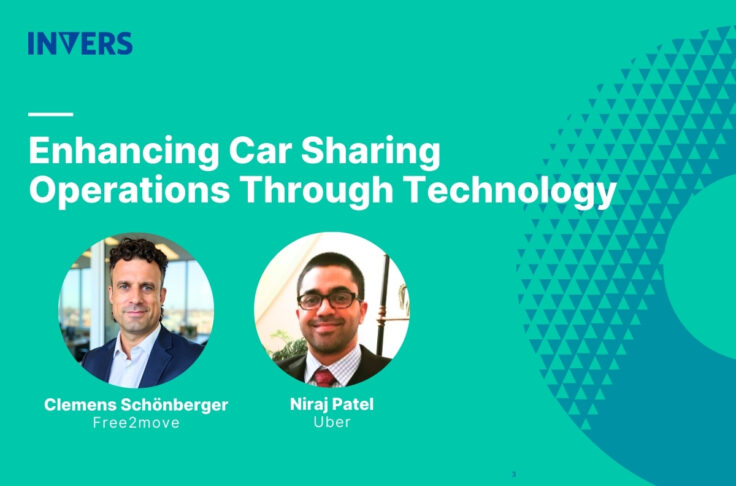Behind the Scenes of Carsharing: The Technology
Summary
Technology makes carsharing possible, and we uncover some details on what exactly happens in the background to enable a seamless user experience.
Carsharing has become more prevalent and well-recognized in cities large and small. How vehicles are successfully shared amongst a membership base is made possible with carsharing technology, which coordinates and enables the communication between the user, the vehicle, and the operating system. The complexities of the technology involved in carsharing operations is nothing short of amazing.
Below we will outline the steps a user would go through in order to start driving a carsharing vehicle. Though the steps may vary between carsharing operators, the overall process is similar.

Registration Process
You: Once you decide a carsharing membership meets your mobility needs, you need to register and become a member. Typically, registering involves completing a form online and submitting your personal information, credit card and driving license details.
In the background: Your registration information is received by the operating software, which runs checks to ensure you meet the minimum requirements to become a member. For example, if the carsharing operator requires you to be at least 19 years old to be a member, the system will check your date of birth. Once your registration information is verified, your will be notified via email of your account status. Your account is now granted access to the fleet of carsharing vehicles.
App Experience
You: Once your membership is confirmed, you can now begin using the carsharing service. Most users rely mainly on the carsharing app to use the service, as it typically offers reservation and vehicle unlocking functions. But first, you need to download and login to the app.
In the background: When you sign in to the carsharing app, your account information will be retrieved from the system and sent to the app, which allows you to view your account information and make a vehicle reservation. In addition, the app frequently syncs with the operating system to keep the vehicle availability you see constantly up to date.

Reserving a Car
You: After browsing through the app features, you decide to take a vehicle for a test drive and use some of the free credits you received when registering. Since you are now logged in to the app, you book a vehicle for an hour from now, giving you time to put together a grocery list and make an errand out of your test drive. You confirm your reservation and get ready for your trip to the grocery store.
In the background: When your reservation parameters are requested, the operating system confirms which vehicles are available at that time. Once a vehicle is identified, the system communicates with the vehicle’s in-car technology so it knows a user has made a reservation an hour from now. Now, only you can access the vehicle and no one else.
Accessing the Vehicle
You: When it’s time for your reservation to start, you head over to the vehicle, which is conveniently at the end of the block. You take out your phone and open the app to get into the vehicle. A push of a few buttons and the door of the vehicle unlocks for you. You take the key from the key holder, and it’s time to start driving!
In the background: When you start your reservation from the carsharing app, the system talks to the in-car vehicle hardware to make sure you are the account that made the reservation. Once the vehicle knows you have a valid reservation, the vehicle doors will unlock. The system starts recording the trip information like when you entered the vehicle.

Ending the Trip
You: Once your groceries are purchased and you arrive back in your neighbourhood, you no longer have a need for the vehicle. Fortunately, you can park right outside your condo building. To make the vehicle available to the next member, all you have to do is return the key back to the key holder. You grab all your belongings, close the door, and within seconds the vehicle doors lock. Your trip is complete.
In the background: The moment the key is returned to the key holder, the system knows you are ready to end your trip. The system and in-car hardware work together to make sure the car is parked in a proper location. The door will lock once the user gets out of the vehicle. Once these actions are completed, the trip will end, and the system will make the vehicle available to other members again.
Post-Trip
You: For the rest of the night, you take it easy and relax. Out of curiosity, you decide to browse the carsharing app to see what other features it has. You see that your trip details has updated in your account – the start and end time shows, as well as what the cost of the trip. The driving credits you had were automatically applied and deducted from the total.
In the background: When the trip is completed, the system receives the trip information, like start and end location and trip duration. This information allows the system to calculate the total cost of your trip, and that amount is automatically billed to the credit card you entered at registration.
Conclusion
Throughout every step of the user experience, technology is involved in some form. This means that the success of a carsharing operation is built on the foundation of a reliable technology platform. In order to offer a seamless experience, the carsharing technology must support the functions and business model of the operation.


